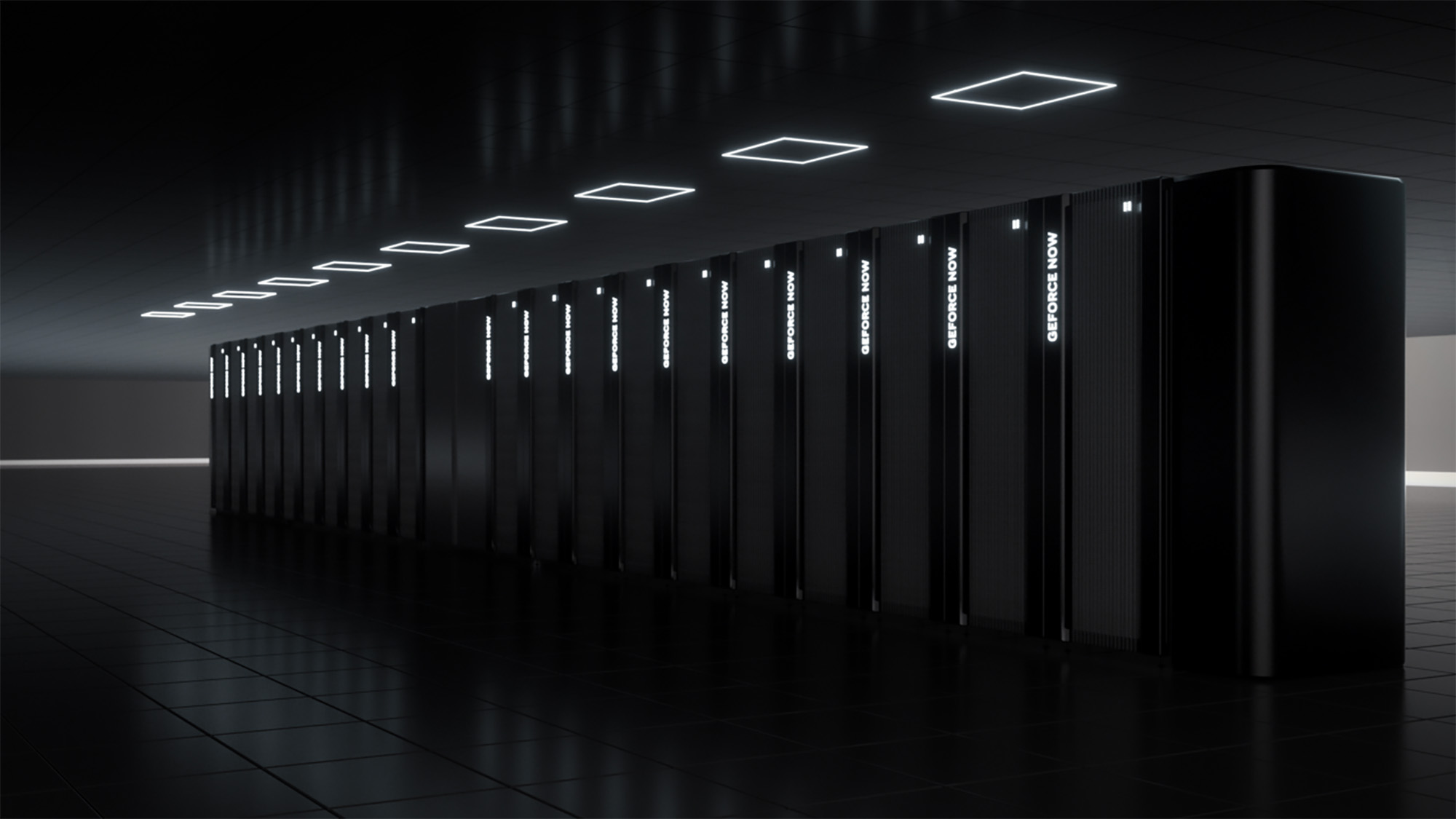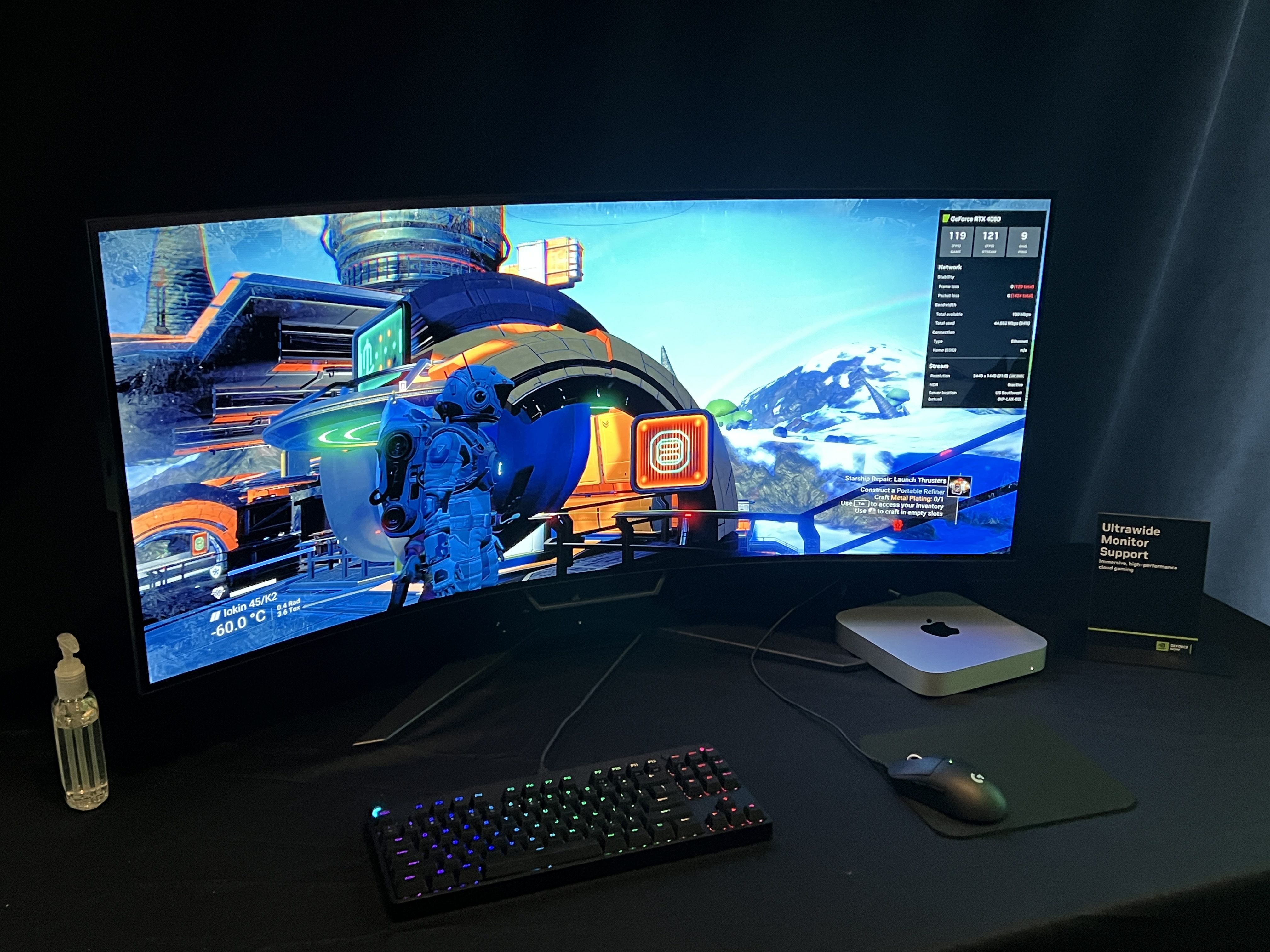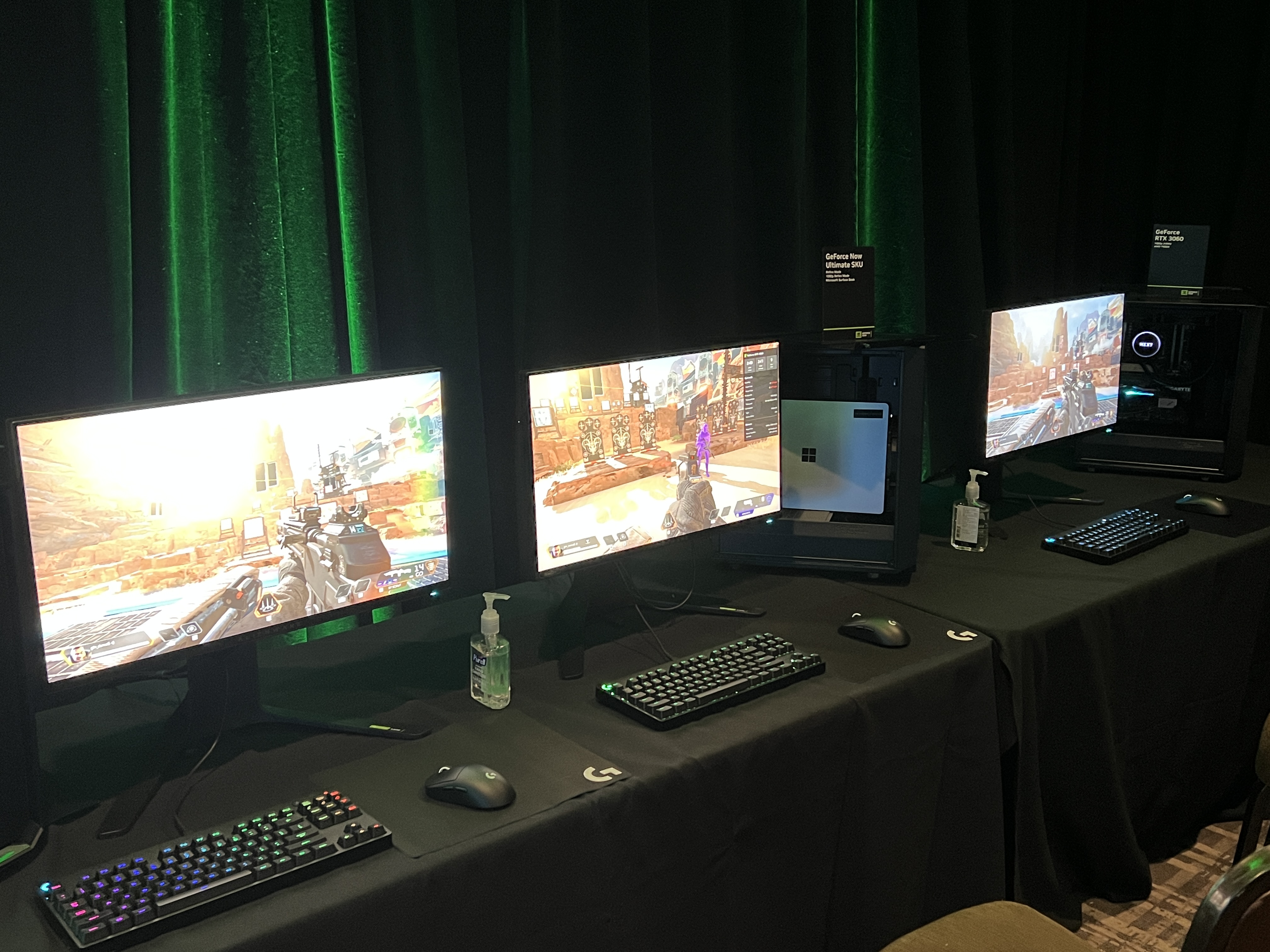Gaming Chromebooks aren't a con — CES showed me that they might be the future
I didn't believe in GeForce Now, but boy howdy I was wrong

When gaming Chromebooks were announced back in October of 2022, you'd be forgiven for cocking you head to the side and looking puzzled. We were right there with you.
In fact, our own Christian Guyton wrote just a month ago that gaming Chromebooks were, well, a bit of a con that were promising way more than they could ever really deliver.
That might have been the case in early december, but after getting a hands-on look at the latest GeForce Now Ultimate Membership tier at CES 2023, I'm no longer convinced he's right. Not only should gaming Chromebooks be taken seriously, I'm here to tell you that they have a wide open runway for success.
Nvidia is rolling out GeForce Now Ultimate and it is impressive

My experience with Nvidia GeForce Now has been limited, I will admit. When it comes to PC games, I like playing on the best gaming PC I can, or — barring that — the best gaming laptop. I want powerful enough hardware to drive high frame rates at a respectable resolution with high-quality visuals — and I don't have time for lag.
Years ago, I experimented with Playstation's streaming service, Playstation Now, on the PS4 and lets just say that I wasn't exactly impressed. This was ages ago (and I'm sure the PS Now of today is great), but it was enough to turn me off to game streaming for good. Or so I thought.
Nvidia's own GeForce Now gets pretty respectable reviews, but it hasn't been the kind of service that was able to really replace traditional gaming hardware, something Nvidia itself acknowledged when we spoke this past week at a demo at CES.
The key problem has been system latency, which is the time it takes for you to push a button or otherwise provide input on your controller or mouse and keyboard and have that input reflected in the frame on the screen. A console has a typical latency of around 50 to 60 milliseconds and high-end gaming PCs can get even lower, but streaming services have struggled to get below 60ms, and that's been a real problem.

The difference between 80ms and 60ms might not seem like a whole lot, but for gaming, it can make or break your experience as your controls feel sluggish and your shots don't land like they should. And you can forget esports and competitive games like Warzone.
Enter Nvidia's just-announced update to GeForce Now's top-tier plan, which is now called GeForce Now Ultimate Membership. This new revamp to the service introduces RTX 4080 server pods for game rendering that on its own should be enough to get latency beneath that 60ms threshold, but Nvidia is also incorporating Nvidia Reflex into its server-side processing, which Nvidia claims can get transmission latency down to about 35ms whether or not developers have worked Reflex into their games.
These two puts this tier on par with the gaming PC running an RTX 4070 Ti I saw at CES using DLSS 3 frame generation on CyberPunk 2077 (pounding out about 140 fps at 1440p), so this is a serious performance improvement, and it's enough to make game streaming truly viable.
There are a lot more bells and whistles running behind the scenes, as well as partnerships with OEMs to optimize their products to leverage these new Nvidia technologies, but I'll just summarize it all by saying that this is not going to be the GeForce Now of yesteryear, or even yesterday.
With latency this low, who needs high quality hardware?

And this is where Chromebooks come in.
With Nvidia GeForce Now Ultimate running an RTX 4080 to stream your game and with Chromebooks more than capable of streaming with WiFi 6 and soon WiFi 7 capability, there's very little reason for people on a tight budget to not go for a Chromebook is they want to game. Yes, GeForce Now Ultimate is going to cost you $20 a month, but with if you are looking to play the latest PC games, this isn't a bad compromise if you can't swing for a high-end gaming laptop.
And, of course, there is only so much Nvidia can do. If there is an internet outage in your area or you're like a lot of people in the US whose overpriced internet is absolute trash when it comes to speeds and service uptime, then this isn't going to solution you are looking for.
But, it is a decent place to start, and for a lot of people it's going to make a lot more sense than buying a $2,000 gaming laptop that may or may not play the games you want to play at the highest settings.
And in the long run, I think this is where we are all going to go anyway. As cloud computing becomes faster and latency is eliminated, games are going to increasingly move to a gaming-as-a-service model, for better or worse.
There have been more than enough controversies about Amazon editing films on Prime Video after they've been released or Netflix pulling your favorite shows off the service when it is done with them but you aren't, and I don't like the idea of gaming taking up that way of doing business.
But in the end, gaming is a business, and while locally playing your favorite games will always be an option for some, it will be so for a lot fewer people as economics make it more sensible for families to invest in cloud gaming rather than more expensive physical hardware. The fact that companies will find it more profitable to encourage those families to move to the cloud faster gives it all a feeling of inevitability that is hard to ignore.
Get daily insight, inspiration and deals in your inbox
Sign up for breaking news, reviews, opinion, top tech deals, and more.

John (He/Him) is the Components Editor here at TechRadar and he is also a programmer, gamer, activist, and Brooklyn College alum currently living in Brooklyn, NY.
Named by the CTA as a CES 2020 Media Trailblazer for his science and technology reporting, John specializes in all areas of computer science, including industry news, hardware reviews, PC gaming, as well as general science writing and the social impact of the tech industry.
You can find him online on Bluesky @johnloeffler.bsky.social